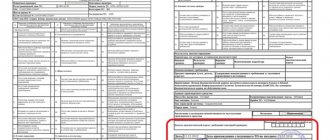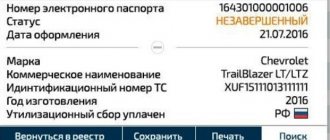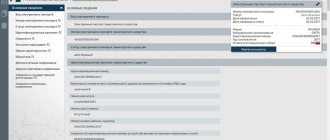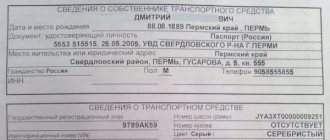The need to register a car with the traffic police sooner or later faces almost any car owner. Both to individuals and legal entities. The procedure for registering vehicles is almost the same for ordinary citizens and organizations, however, legal entities must provide a much wider range of documents to the traffic police department. This is where the main problem lies, since not all organizations have a good idea of what exactly these documents should be.
Procedure for registering a vehicle as a legal entity
It doesn’t matter exactly how the car was received by the organization - under a sales contract, as a gift, by winning a competition. In any case, the vehicle must be registered with the traffic police within 10 days after it is transferred to the company’s balance sheet. The exception to this rule is transit numbers. You are allowed to drive with them without registration for up to 20 days after receiving ownership of the car.
There is no need for the previous owner to deregister the car (if the car already had an owner). This happens automatically as part of the procedure for re-registration of the vehicle by the new owner.
To register a car, the company must send its authorized person (employee) to the traffic police department with a full package of necessary documents. A legal entity has the right to choose any branch of the State Traffic Inspectorate for this procedure, without reference to the address of its head office.
Car registration includes a number of mandatory steps:
- Obtaining an MTPL insurance policy. To complete it, you will need to provide employees of the insurance organization with a document certifying the organization’s ownership of the car, as well as a technical passport (PTS), which will indicate all the characteristics of the car, including unique numbers of the frame, chassis, engine and other components;
- Passing a technical inspection. Without a diagnostic inspection card, it will not be possible to register a car with the traffic police (even a completely new one) and get new license plates for it. Inspection of used cars takes more time, since the maintenance employee is obliged to check the body, engine and chassis numbers with his database to determine whether the car is wanted or stolen;
- Contacting the traffic police department to write an application for vehicle registration. The application form (its front side) can be filled out either at the department itself, or downloaded in advance using the link at the end of the article, and then completed in a relaxed atmosphere;
- Receive a pass to pass the queue. The coupon is taken at the State Traffic Inspectorate office in a special electronic terminal. After selecting the menu section “Registration of transport for legal entities”, the terminal will issue a coupon with a serial number and a window where you should apply with documents in order;
- After submitting the application and documents, the traffic police officer will check them for authenticity , and will also check information about the vehicle and its owner against electronic databases. At this stage, a visual inspection of the car will be carried out to verify the numbers of its main units;
- Payment of the state fee for registration. If no problems arise when checking documents and inspecting the car, the inspector will issue permission to obtain new license plates (or re-register a car with old license plates). The receipt for payment of the duty received from the inspector should be redeemed at the nearest bank branch or in a special electronic terminal;
- Vehicle registration. After presenting a receipt for payment of the state duty, the car will be officially registered.
Vehicle Registration Rules 2021.
, the Federal Law on Vehicle Registration , new Vehicle Registration Rules and the new Vehicle Registration Regulations 2020 came into force . The Decree of the Government of the Russian Federation on the application of additional markings on vehicles also came into force. Let's now look at what changes in car registration occurred in 2020 after the adoption of these documents:
1. The legislator divided the concepts of state registration number and state registration mark .
The state registration number is assigned by the State Traffic Inspectorate and is indicated in the documents for the car.
The state registration plate is a metal plate with the state registration number printed on it. The sign is installed directly on the vehicle.
2. The assignment of the region code of the registration number is carried out in accordance with the digital region code of the place in which the owner of the car is registered.
3. The owner of a vehicle can obtain a state registration plate at the registration department by paying the appropriate state fee, or at a specialized organization that produces registration plates.
4. If the owner of the vehicle is registered in another region of the Russian Federation , after registration he receives state registration plates only from the manufacturer .
5. Preservation of the state registration number is carried out at the request of the owner of the vehicle for which it was registered. After completing the registration action, the state registration plate remains with the owner of the vehicle. The period for maintaining the state registration number is 1 year.
The assignment of a saved state registration number is carried out by any registration department at the place of application of the vehicle owner.
You can read more about license plates here.
6. It is now possible to register vehicles in specialized organizations. However, this opportunity is only available if you purchase a new car from a dealership.
7. Registration of vehicles is prohibited for persons under 16 years of age . If there is a need to put a car in the name of a child under the specified age, registration is made for a limited period in the name of his legal representative. In this case, the car registration period ends when the child reaches 16 years of age . After this, the car must be re-registered in his name.
8. Now you can stop registering a vehicle without specifying a reason (sale, disposal, etc.). That is, you can come to the traffic police and simply deregister the car.
9. Additional vehicle marking has been introduced. It is applied if the original marking of the vehicle or its main component (body, cab or frame) is destroyed due to corrosion, repair, or tampered with, hidden, altered or destroyed due to illegal actions of third parties. Additional markings will be applied by certification bodies, accredited testing laboratories or vehicle manufacturers.
10. The period for not registering a car temporarily imported from outside the Russian Federation has been extended. Previously it was 6 months, but now it is 1 year.
How long will the car registration procedure take?
State Traffic Inspectorate employees have their own official regulations, which require spending a certain amount of time on each procedure within the framework of car registration for legal entities.
If you do not take into account the time that will be spent by the organization on preparing all the necessary documentation, obtaining an MTPL insurance policy and passing a technical inspection, registering a car at the traffic police department will take no more than 90 minutes, namely:
- accepting an application for vehicle registration - 5 minutes;
- checking documents about the car and its owner on the computer - no more than 20 minutes;
- visual inspection of the car - 20 minutes;
- the final decision on whether the car can be registered - a maximum of 10 minutes;
- preparation of documents for vehicle registration if the result is positive - 10 minutes;
- final check of all documents - 5 minutes;
- entering information about the owner of the car and the car itself into the traffic police electronic database - 10 minutes;
- issuing new numbers (if necessary) - no more than 10 minutes.
A few words about submitting an application for vehicle registration. This can be done not only directly at the traffic police department, but also remotely using the official State Services portal. In the latter case, you need to select the block on the main page of the resource, and then “Vehicle registration”.
The application form for car registration is the same for individuals and legal entities. However, legal entities must fill it out in a slightly different way. A sample of filling out the application form by a legal entity is provided at the link at the end of the article.
In the application, it is important to indicate a complete list of all documents attached to it (the “Appendices” section of the form), as well as provide detailed information about the legal entity on whose balance sheet the car is located.
Decree of the Government of the Republic of Kazakhstan dated August 26, 2013 No. 851
5. Vehicles are registered for individuals at the place of their permanent registration of residence or at the place of temporary registration for the period of temporary residence.
State registration of vehicles for legal entities is carried out in accordance with their registered legal address, and for branches and representative offices at their location.
6. If the owner of the vehicle presents a certificate of joint ownership, go to the section “Special co-owner - full name”.
7. Registration and deregistration of vehicles, in cases where the owners are minor citizens under the age of fourteen, are carried out on their behalf by their parents (adoptive parents) or guardianship authorities, and in cases where the owners are persons aged from 14 to 18 years old - by these persons with the written consent of their parents (adoptive parents) or guardianship authorities.
8. Registration and deregistration of vehicles of foreign road users are carried out through the organization for work with the diplomatic corps of the Ministry of Foreign Affairs of the Republic of Kazakhstan in the manner determined by the authorized body in the field of foreign policy activities.
9. State registration and deregistration of vehicles, with the exception of individual passenger vehicles, motorcycles and scooters, carried out by the Department of Internal Affairs, are carried out only after written notification of the relevant departments (departments) for the defense of cities (districts).
10. When registering, changing registration, deregistering vehicles, all necessary data about them is entered into the UIS.
11. When registering and/or deregistering a vehicle, issuing SRTS and GRNZ, making changes to SRTS (with the exception of issuing a replacement registration document that is unsuitable for use), the owners provide the vehicle to the REP for the purpose of verifying the compliance of license plates with the registration data in specified documents and/or in the Unified Information System.
During the visual inspection the following is checked:
1) the safety of the design of the registered vehicle;
2) vehicles of operational and special services that meet the requirements for applying color graphics, identification marks, inscriptions, special light and sound signals;
3) the authenticity of license plates and state registration numbers (identification of hidden, counterfeit or altered in any other way license plates, as well as state license plates) and their compliance with the data specified in the vehicle documents and/or in the Unified Information System.
The design of manufactured vehicles, including the design of their components, additional equipment, spare parts and accessories as they relate to road safety, must meet the requirements established by technical regulations.
After making changes to the design of a registered vehicle, including the design of its components, items of additional equipment, spare parts and accessories that affect road safety, it is necessary to re-confirm compliance in the manner established by the legislation of the Republic of Kazakhstan on technical regulation.
12. The results of the vehicle inspection are reflected in the vehicle registration certificate in the form in accordance with Appendix 1 to these Rules, and are certified by the signature of the official who conducted the inspection, indicating his name, date (in the Public Service Center, the inspection results are generated in the information system and confirmed by an electronic digital signature employee authorized to inspect the vehicle).
Vehicle inspection results are valid for twenty calendar days.
13. It is allowed to submit vehicle inspection reports in the form in accordance with Appendix 2 to these Rules, drawn up at the location of the vehicles and certified by the signature and seal of an employee of the authorized body. The validity period of the act is twenty calendar days.
14. REP employees and PSC employees, when performing registration actions, verify the identity of vehicle owners on the basis of an identity document.
15. If a representative of the owner of a vehicle, who is an individual, applies, his authority to represent the interests of the owner when registering the vehicle is verified on the basis of documents issued in accordance with civil law. The powers of a representative of a legal entity are confirmed by a power of attorney, certified by the signature of the head or other authorized person, and the seal of the legal entity, or the signature of the head and the seal of the legal entity in the vehicle registration act.
16. Upon presentation of the birth certificate of a minor, identification is carried out in the presence of his parents (adoptive parents), guardians (trustees) or representatives of the guardianship and trusteeship authorities.
17. To complete registration actions, vehicle owners submit:
1) an act of registration of a vehicle in the form in accordance with Appendix 1 to these Rules;
2) an identification document (identity card of a citizen of the Republic of Kazakhstan, passport of a citizen of the Republic of Kazakhstan, birth certificate (for minors);
3) address certificate;
4) documents on the payment of duties and fees established by the Code of the Republic of Kazakhstan “On taxes and other obligatory payments to the budget” (Tax Code);
5) documents confirming:
payment of vehicle tax in the manner established by the Tax Code - for tax payers;
the right to tax exemption - for persons who are not tax payers, in accordance with the Tax Code;
6) a certificate confirming the state registration (re-registration) of a legal entity, branch, (representative office) of a legal entity, issued by the registration authority, the charter (for verification) and copies thereof;
7) technical document;
 certificate of the manufacturer or enterprise that installed special (or specialized) equipment on a vehicle within the Republic of Kazakhstan, or relevant customs documents for imported equipment, certificate of conformity;
certificate of the manufacturer or enterprise that installed special (or specialized) equipment on a vehicle within the Republic of Kazakhstan, or relevant customs documents for imported equipment, certificate of conformity;
9) GRNZ, SRTS and/or registration documents of a vehicle imported into the Republic of Kazakhstan under an obligation to re-export;
10) vehicle, except for the cases specified in paragraph 13 of these Rules;
11) direction of the organization for work with the diplomatic corps of the Ministry of Foreign Affairs (for foreign road users);
12) order (instruction) of a legal entity on the allocation and transfer of a vehicle to its structural unit or another legal entity or individual, certified by a seal;
13) a document confirming ownership of the vehicle, license plate, which include:
documents confirming customs clearance (customs declaration, customs receipt order, obligation to re-export in cases of temporary import);
a writ of execution with the attachment of a court-certified copy of the court decision, resolution, notification of the bailiff about the actions of the state body to be executed;
contracts, transactions, certificates, documents on the right to inherit property, drawn up in accordance with the requirements of civil law.
When the vehicle owner applies to the Public Service Center, the documents specified in subparagraphs 1), 3), 5), 6) and paragraph 2 of subparagraph 13) of this paragraph are not submitted.
18. Documents that have erasures or additions, crossed out words and other corrections, as well as those executed in pencil, and if the text in them is not clearly reflected, will not be accepted for state registration of a vehicle. Last names, first names and patronymics of individuals are presented in full, indicating the registration data of the place of residence, and the names of legal entities of their branches and representative offices without abbreviations and with an exact indication of their legal addresses. Copies of documents submitted for registration of vehicles are certified by the original seal of the legal entity that issued these documents.
19. Documents submitted for registration of vehicles, drawn up in a language other than the state or Russian language, are translated into the state or Russian language and must have certifying signatures of a notary confirming the accuracy of the translation or another person authorized to perform such actions.
20. Encumbrances on vehicles introduced in accordance with the law, as well as the period for export abroad of a vehicle temporarily imported into the Republic of Kazakhstan under an obligation to re-export, are entered into the Unified Information System.
Changes to the specified information in this paragraph are made on the basis of documents issued by the authorities that introduced the relevant prohibitions and restrictions.
21. State registration of vehicles sold from military units is carried out on the basis of documents issued by the authorized body for the sale of these vehicles.
22. In the SRTS of vehicles equipped with devices for giving special light and sound signals, a recording is made of “Sound and light (s) (the specific color of the special beacon is indicated) special signal.”
Deregistration and changes in registration data related to the termination of the right to equip a vehicle with devices for giving special light and sound signals, and the use of a color graphic scheme provided for by state standards of the Republic of Kazakhstan, are carried out after dismantling these devices and eliminating the color graphic scheme.
23. Before state registration of vehicles, as well as deregistration, the vehicle and owner are checked using the information resources of the Department of Internal Affairs to determine if they are wanted. The result of the inspection is noted in the vehicle registration report indicating the date, time, name and signature of the authorized employee who conducted the inspection.
24. If signs of forgery of the submitted documents, GRNZ, changes in factory markings, discrepancy between the unit numbers and the submitted documents or registration data are detected, as well as the presence of information about the location of the vehicle (numbered units), the owner or the submitted documents, the police officer immediately transmits the information to the duty room part of the Department of Internal Affairs, vehicles are detained, and documents are transferred to the relevant territorial Department of Internal Affairs.
Broken, sawed-off license plate units, vehicles that have not been deregistered due to the search, are not subject to registration.
25. For registered technically sound vehicles, SRTS and GRNZ of the appropriate types are issued. Two GRNZ are issued for cars and buses, and one GRNZ is issued for motor vehicles and trailers.
Samples of the GRNZ of vehicles are approved by the authorized body in the field of road safety.
26. For vehicles delivered under their own power from manufacturing plants, auto repair plants, customs control authorities and trade organizations to the place of registration, as well as deregistered due to a change in place of residence or change in ownership, they are issued for one-time use GRNZ "Transit" » respectively, by manufacturing organizations or REP.
When issuing GRNZ "Transit", marks are made in documents confirming ownership of vehicles indicating the series, number, date of issue and validity period of the indicated signs and are certified by the seals of the organizations that made these entries.
The validity period of the GRNZ "Transit" is ten calendar days from the date of issue.
Extension of the validity period of the GRNZ "Transit" is carried out by an REP employee once. The extension period is ten calendar days.
Advertisement vehicle marks of officials of the authorized body.
28. For transport under encumbrance, duplicate documents and state registration documents are issued on the basis of permits issued by the authorities that have imposed appropriate restrictions.
29. If registration documents for deregistered vehicles are lost, the owner of the REP vehicle, regardless of location, is issued a certificate confirming the previous registration. REP requests are sent to the place of previous registration of the vehicle, the execution of which is mandatory within 3 working days from the date of receipt of the request.
30. Acts of registration of vehicles, documents confirming the ownership of vehicles (licensed units), registration documents and State Registration Certificate of the Republic of Kazakhstan and the states of registration of vehicles (if they are not seized by the customs authority) imported into the Republic of Kazakhstan, and State State Register of Transit "Transit" are submitted to the REP.
31. State registration of vehicles temporarily imported into the territory of the Republic of Kazakhstan for a period of more than two months under an obligation to re-export is carried out with issuance to the owners of SRTS and GRNZ for the period of their import specified in customs documents. The originals of registration documents and state registration documents of other states are stored in the REP.
32. The following series of state registration certificates are issued for vehicles owned by foreign road users:
“D” - for official and personal vehicles of employees of diplomatic missions accredited in the Republic of Kazakhstan, international organizations and/or their representative offices, consular offices registered in the Republic of Kazakhstan;
“T” - for official and personal vehicles of administrative and technical personnel of diplomatic missions accredited in the Republic of Kazakhstan, international organizations and/or their representative offices, consular offices registered in the Republic of Kazakhstan;
“NS” - for vehicles of honorary consuls of foreign states accredited in the Republic of Kazakhstan;
“M” - for vehicles of branches and representative offices of foreign legal entities registered on the territory of the Republic of Kazakhstan;
“N” - for vehicles of legal entities with foreign participation registered on the territory of the Republic of Kazakhstan;
“F” - for vehicles of foreigners and stateless persons.
To participate in road traffic, a vehicle with a state license of the “D”, “T”, “HC” series must have a sticker issued by the organization for working with the diplomatic corps of the Ministry of Foreign Affairs of the Republic of Kazakhstan.
The validity period of the GRNZ series “D”, “T”, “HC” is equal to the validity period of the sticker.
The procedure for registration, assignment and use of a sticker, as well as assignment of indices of vehicles of foreign road users, is approved by the authorized body in the field of foreign policy activities.
33. A vehicle assembled from spare parts and assemblies of rejected vehicles or converted in violation of technical regulations will not be accepted for registration.
34. Information about completed registration actions, registered vehicles, owners and possessors of vehicles, as well as documents (copies of documents) that served as the basis for registration actions, on the basis of a written request, are issued to the courts, prosecutorial authorities, investigations, inquiries in connection with the in their proceedings in criminal, civil cases, cases of administrative offenses, bailiffs in connection with the exercise of their functions of executing judicial acts or acts of other bodies, as well as tax, customs and other authorities and persons in cases and in the manner provided for by the legislation of the Republic of Kazakhstan.
35. Vehicles purchased under lease are registered on the basis of the Law of the Republic of Kazakhstan dated July 5, 2000 “On Financial Leasing” and the documents specified in paragraph 17 of these Rules.
36. Vehicles acquired into ownership by an individual or legal entity and transferred by him on the basis of a leasing agreement or subleasing agreement to an individual or legal entity for temporary possession and (or) use are registered by written agreement of the parties with the lessor or lessee.
37. State registration of vehicles for the lessor, performance of other registration actions and deregistration of such vehicles are carried out by the REP at the place of legal registration of the lessor on a general basis.
38. Vehicles transferred by the lessor to the lessee for temporary possession and (or) use on the basis of a leasing or subleasing agreement, which provides for the registration of vehicles with the lessee, are temporarily registered in the REP on the basis of the leasing or subleasing agreement with the lessee for the period of its validity at the location.
Temporary state registration of vehicles for the lessee is carried out with the issuance of SRTS and GRNZ for the period specified in the leasing or subleasing agreement or in documents issued by customs authorities upon temporary import of vehicles into the territory of the Republic of Kazakhstan.
SRTS and GRNZ issued by the REP at the place of registration of vehicles with the lessor, as well as copies (photocopies) of leasing or subleasing agreements issued for vehicles registered or not registered with the lessor, are handed over to the REP at the place of temporary registration of vehicles with the lessee.
39. Registration documents and registration license plates of vehicles temporarily imported from other states into the territory of the Republic of Kazakhstan are submitted to the REP at the place of registration of the vehicles and are registered with the lessee.
40. Vehicles registered with the lessor or temporarily registered with the lessee on the basis of a leasing agreement providing for the transfer of ownership of the vehicles to the lessee are removed from the relevant registration records and registered with the lessee on the basis of written confirmation from the lessor of the transfer of ownership of the vehicles, leasing agreement, upon completion of customs clearance of a vehicle temporarily imported into the territory of the Republic of Kazakhstan.
Upon expiration of the lease agreement, which does not provide for the transfer of ownership of vehicles to the lessee, the vehicles are removed from the appropriate records and can be registered with the lessees only on the basis of relevant documents certifying the lessee’s ownership of such vehicles, including upon completion customs clearance of vehicles temporarily imported into the territory of the Republic of Kazakhstan.
41. Based on the corresponding written application of the lessor, in the event of termination of the leasing agreement and withdrawal by the lessor of vehicles temporarily registered with the lessee, such vehicles are deregistered.
42. Changes in the registration data of vehicles temporarily registered to the lessees are made only if the lessee carries out major and/or routine repairs of the vehicles, including the replacement of license plate units, if this is provided for in the contract.
Changes in registration data in these cases are carried out at the REP at the place of temporary registration of vehicles for the lessee with the replacement of issued registration certificates and making appropriate changes to vehicle passports.
43. Upon expiration of the period for temporary registration of vehicles for lessees, these vehicles are deregistered based on applications from lessees. SRTS and GRNZ issued to lessees are handed over to the REP at the place of temporary registration of vehicles. Applicants are returned the registration documents and state registration documents accepted from them for vehicles registered with the lessors.
When deregistration of vehicles temporarily imported into the Republic of Kazakhstan in connection with their export outside the Republic of Kazakhstan, applicants are issued an SRTS with notes on deregistration of the vehicle, and also the registration numbers of foreign states of registration of vehicles are returned, and in their absence, issued GRNZ "Transit".
44. Special vehicles imported into the Republic of Kazakhstan at a preferential customs tariff, in case of conversion to another type of vehicle to which customs benefits do not apply, are registered after providing the appropriate permission from the customs authority.
What documents will be needed to register a car with an organization?
The full list of documents is specified in Order of the Ministry of Internal Affairs of Russia dated August 7, 2013 No. 605. In addition to the application for registration, the traffic police inspector will need to present:
- a power of attorney to carry out registration actions with a vehicle, issued in the name of one of the organization’s employees (signed by the general director of the company);
- passport of a citizen of the Russian Federation (authorized person);
- documents for the vehicle, registration certificate (CTC) from the previous owner and technical passport (PTS);
- certificate of ownership of the car (sale and purchase agreement, deed of gift, extract from the separation balance sheet, etc.);
- MTPL insurance (can be in electronic form);
- an extract from the Unified State Register of Legal Entities containing basic information about the organization;
- a copy of the payment order with execution for payment of the state duty for registering the car.
Several more documents will have to be prepared if the car is delivered at the registration address of a separate division of the company. We are talking about the following documents:
- a certificate of assignment of a TIN to a separate division of the company at the place of its registration;
- internal documents of a legal entity on the creation of a separate division;
- certificate of entry into the state register and registration of a separate division (representative office, correspondent office, branch);
- an order on behalf of the head of the company to provide his separate division with a car.
Particular attention should be paid to the correct execution of a power of attorney for car registration, since heads of organizations rarely do this on their own.
Not only company managers, but also other authorized persons have the right to issue powers of attorney. As a rule, one power of attorney is issued only for the registration of one car. But you can also include several cars and other special equipment in the document. In this case, you will need to provide complete information about each technical means.
Types of registration actions and the procedure for their implementation
Registering a car, deregistering it, issuing duplicates of lost registration documents, registration plates, vehicle passports, etc. are registration actions and they are performed in the registration departments of the traffic police. Persons who violate the Registration Rules are liable in accordance with current legislation. Types of registration actions Registration units of the State Traffic Safety Inspectorate carry out (clause 2.1. Registration Rules): • registration (registration) of vehicles and issue registration certificates and registration plates; • change of registration data; • deregistration of vehicles; • issuance of vehicle passports; • issuance of registration plates “Transit”; • temporary registration of the location of vehicles; • issuance of duplicates of registration documents, registration plates, vehicle passports (to replace those that are lost, unsuitable for use, do not correspond to established standards, or whose validity has expired); • issuing technical inspection certificates for vehicles; • issuance of documents for released vehicle license plates; • issuance of certificates (at the request of government bodies - courts, prosecutors, etc.). Vehicles subject to registration with the State Traffic Safety Inspectorate Registration rules establish a uniform procedure for registering motor vehicles with an engine capacity of more than 50 cubic meters with the State Traffic Safety Inspectorate throughout the Russian Federation. cm and a maximum design speed of more than 50 km/h and trailers for them intended for driving on public roads (clause 1.1 of the Registration Rules). Vehicles belonging to any organizations, citizens of the Russian Federation, foreign legal entities and citizens, stateless persons are subject to registration. The rules also apply to vehicles registered in other states and temporarily imported into the Russian Federation for a period of more than 6 months. Vehicles that were previously registered with the traffic police departments and have not been deregistered at the place of registration will not be accepted for registration (clause 1.17 of the Registration Rules). Vehicles not subject to registration with the State Traffic Safety Inspectorate The following vehicles are not registered: • made from components, equipment, spare parts, accessories that have not been certified for compliance with the rules, regulations and standards in force in the Russian Federation; • the design of which or changes made to the design do not comply with the requirements of the rules, regulations and standards in force in the Russian Federation regarding road safety or the submitted documents (clause 1.17 of the Registration Rules). Temporarily imported vehicles Vehicles registered in other countries and temporarily located on the territory of the Russian Federation for a period of up to 6 months are subject to registration with the customs authorities of the Russian Federation (clause 2 of the Decree of the Government of the Russian Federation of August 12, 1994 No. 938). Other vehicle registration authorities Tractors, self-propelled road-building and other machines and trailers for them are subject to registration with state authorities supervising the technical condition of self-propelled vehicles and other types of equipment in the Russian Federation (clause 2 of the Government of the Russian Federation of August 12, 1994 No. 938 ). Vehicles of the Armed Forces of the Russian Federation and other troops are subject to registration in the automobile services of the Armed Forces of the Russian Federation and other troops. The procedure for making changes to the design of vehicles Making changes to the design of vehicles is regulated by the document “The procedure for monitoring changes to the design of vehicles registered with the State Road Safety Inspectorate of the Ministry of Internal Affairs of the Russian Federation,” approved by the Order of the Ministry of Internal Affairs of the Russian Federation of December 7, 2000. No. 1240. You must submit an application for changes to the design of the vehicle to the traffic police department at the place where the vehicle is registered. The statement details the changes being made to the design. Based on the results of consideration of the application by the traffic police department, an appropriate decision is made, which indicates: • the procedure and conditions for registration and issuance of a certificate of compliance of the vehicle with safety requirements, • as well as the need to obtain an opinion on the possibility and procedure for making changes to the design. If the decision provides for obtaining an opinion, then the decision also lists the organizations where it can be obtained, and the owner of the vehicle needs to contact these organizations. A conclusion is not required in the following cases: • the vehicle, after changes made to its design, corresponds to a duly certified vehicle of the same brand and the same manufacturer; • the changes made are provided for in the List of changes to vehicle designs, which can be carried out without submitting a conclusion on the possibility of making changes to the design, but with the permission of the State Traffic Safety Inspectorate. The list of such changes is given in Appendix No. 2 to the Procedure for Controlling Changes. Procedure for performing registration actions To perform registration actions, you must submit: an application and the necessary documents, properly executed; vehicle (except for cases of its disposal); • vehicle registration plates or Transit registration plates. The applicant can be the owner of the vehicle or his representative, i.e. if you are the owner of the car, then you can issue a power of attorney with the right to perform registration actions. In the registration department of the State Traffic Safety Inspectorate: • the identity of the applicant is established and the authority of the representative is checked; • documents certifying ownership and (or) vehicle passport are checked; • the vehicle is inspected and checked. After this, the appropriate registration actions are performed (issuing a registration certificate, a vehicle passport, making changes to them, etc.). Refusal to carry out registration actions The State Traffic Safety Inspectorate is obliged to inform applicants in writing about a refusal to carry out registration actions, indicating the reasons for the refusal (clause 3.36 of the Registration Rules).
Owners of vehicles who consider the registration action or refusal to perform a registration action to be incorrect have the right to file a complaint (clause 1.21 of the Registration Rules) • to a higher internal affairs body (i.e., to the REO department of the city (regional) State Traffic Safety Inspectorate) • or to the court . On topic: Registering a car









